
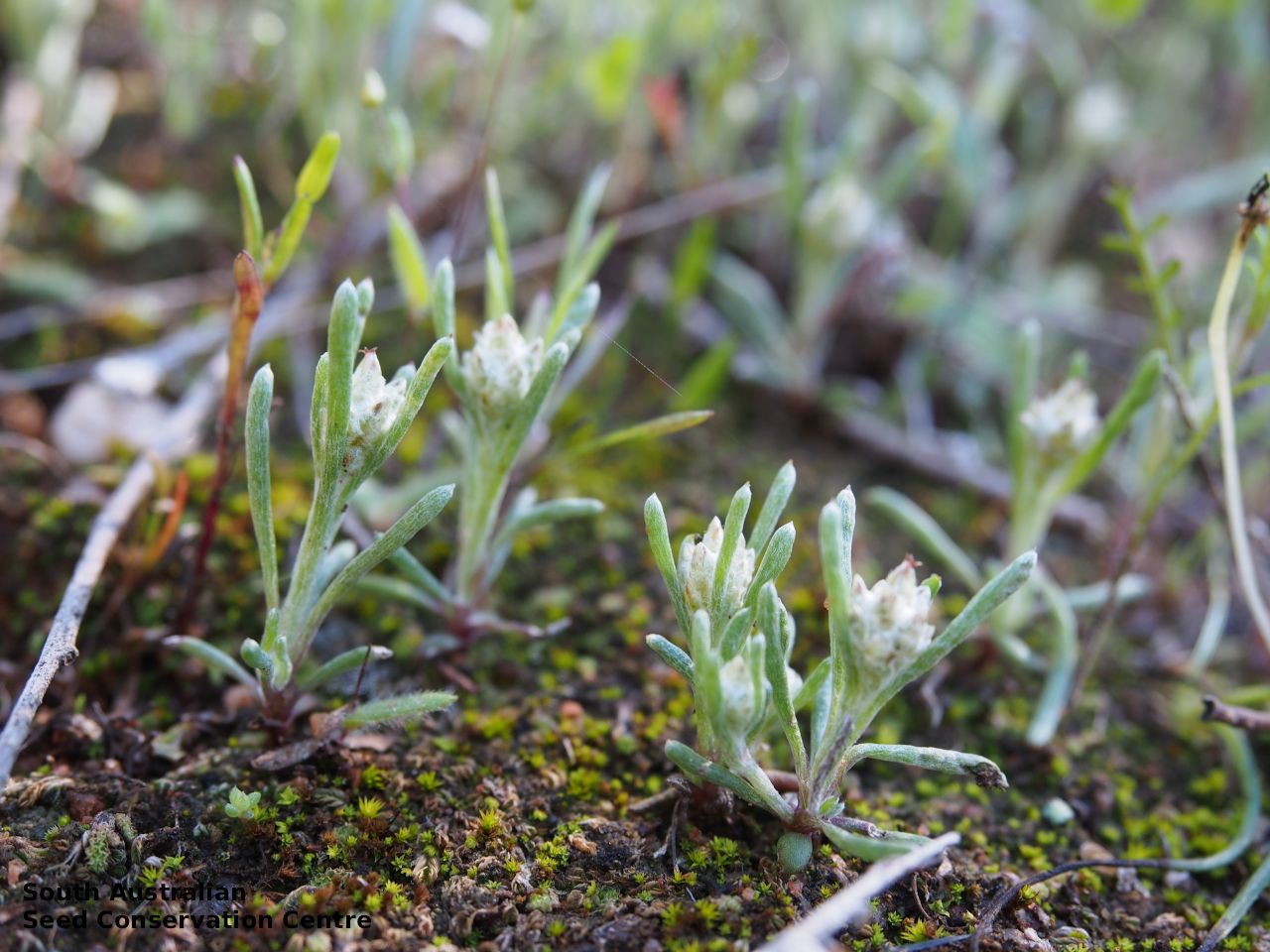
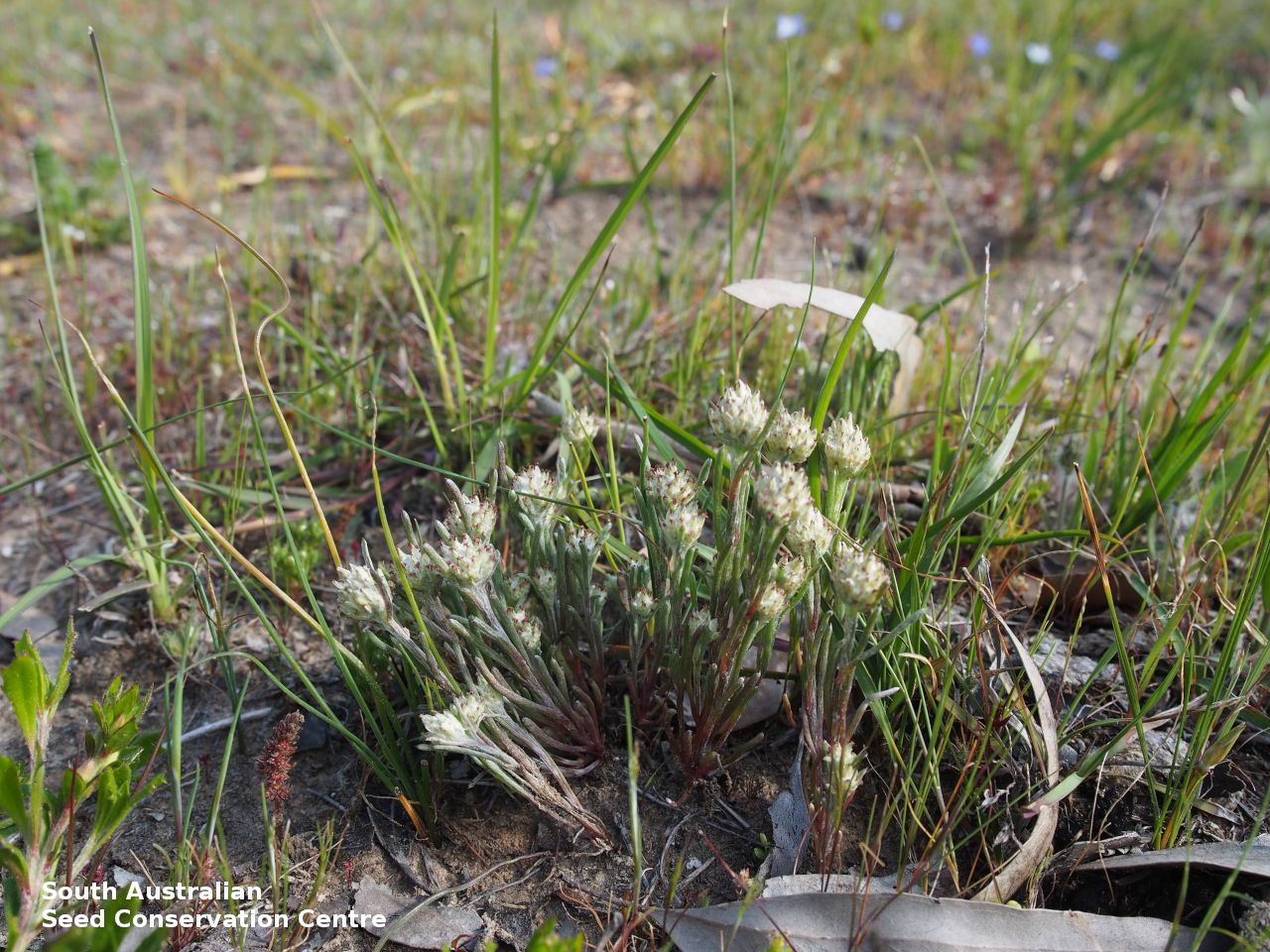

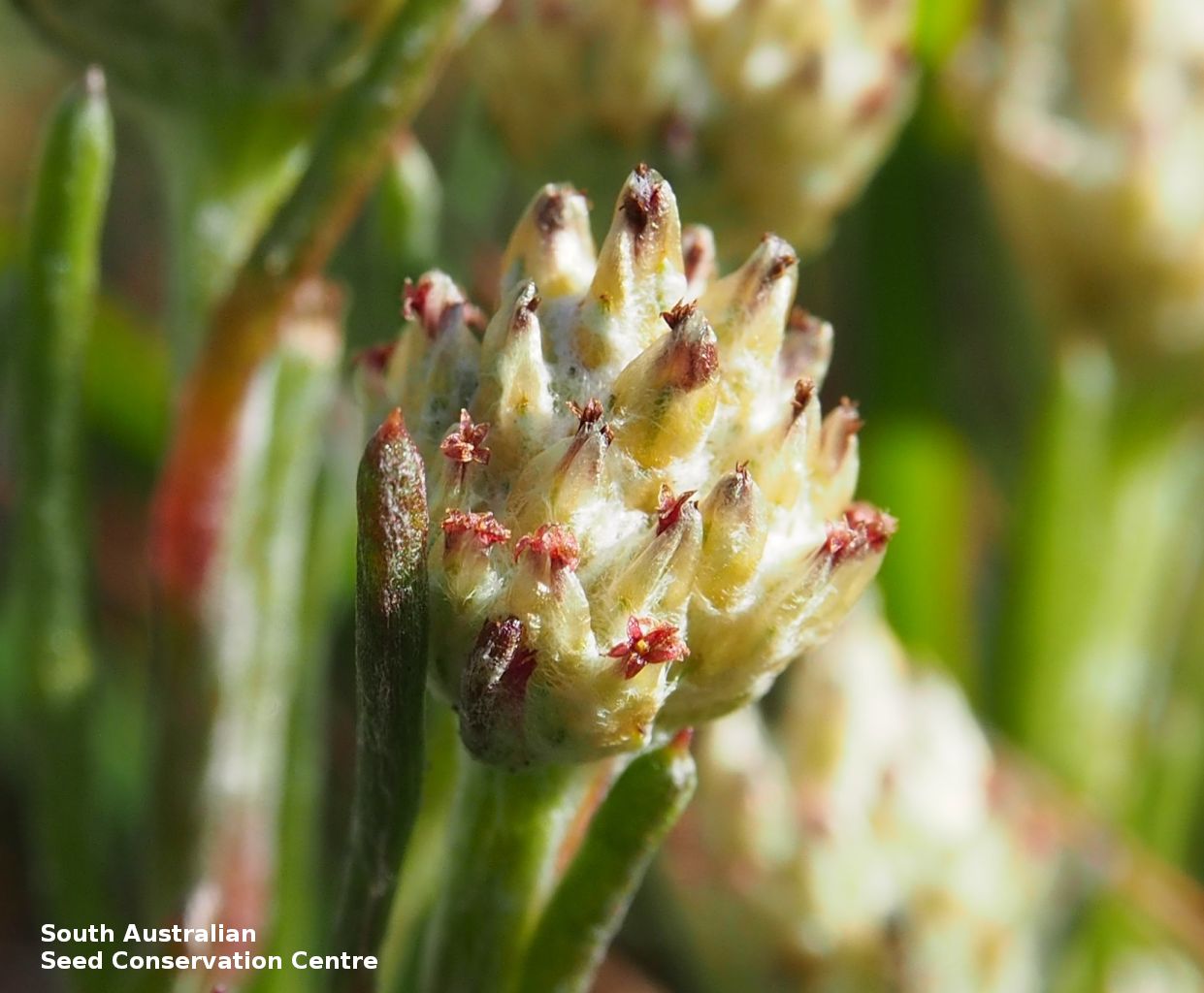
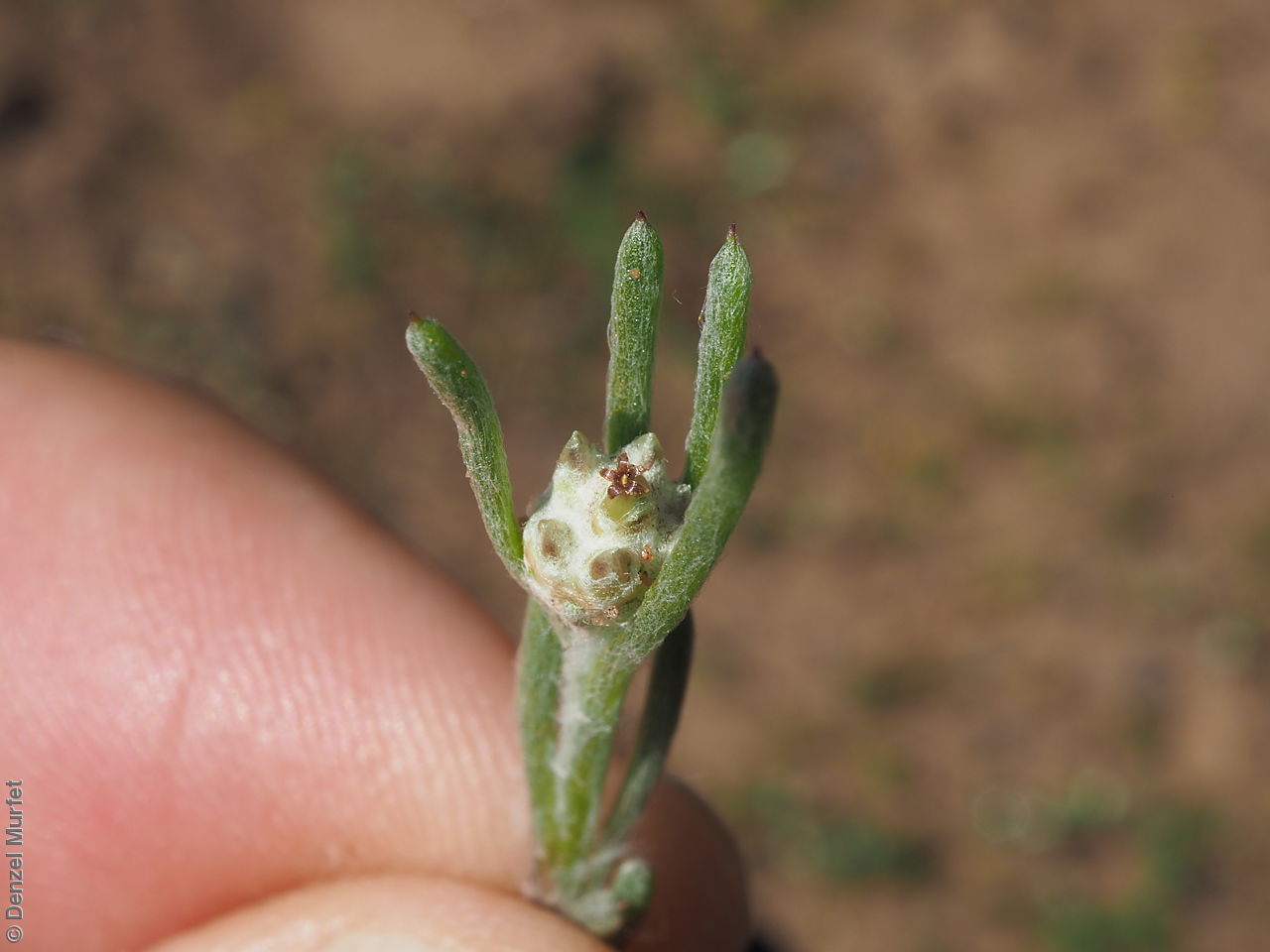


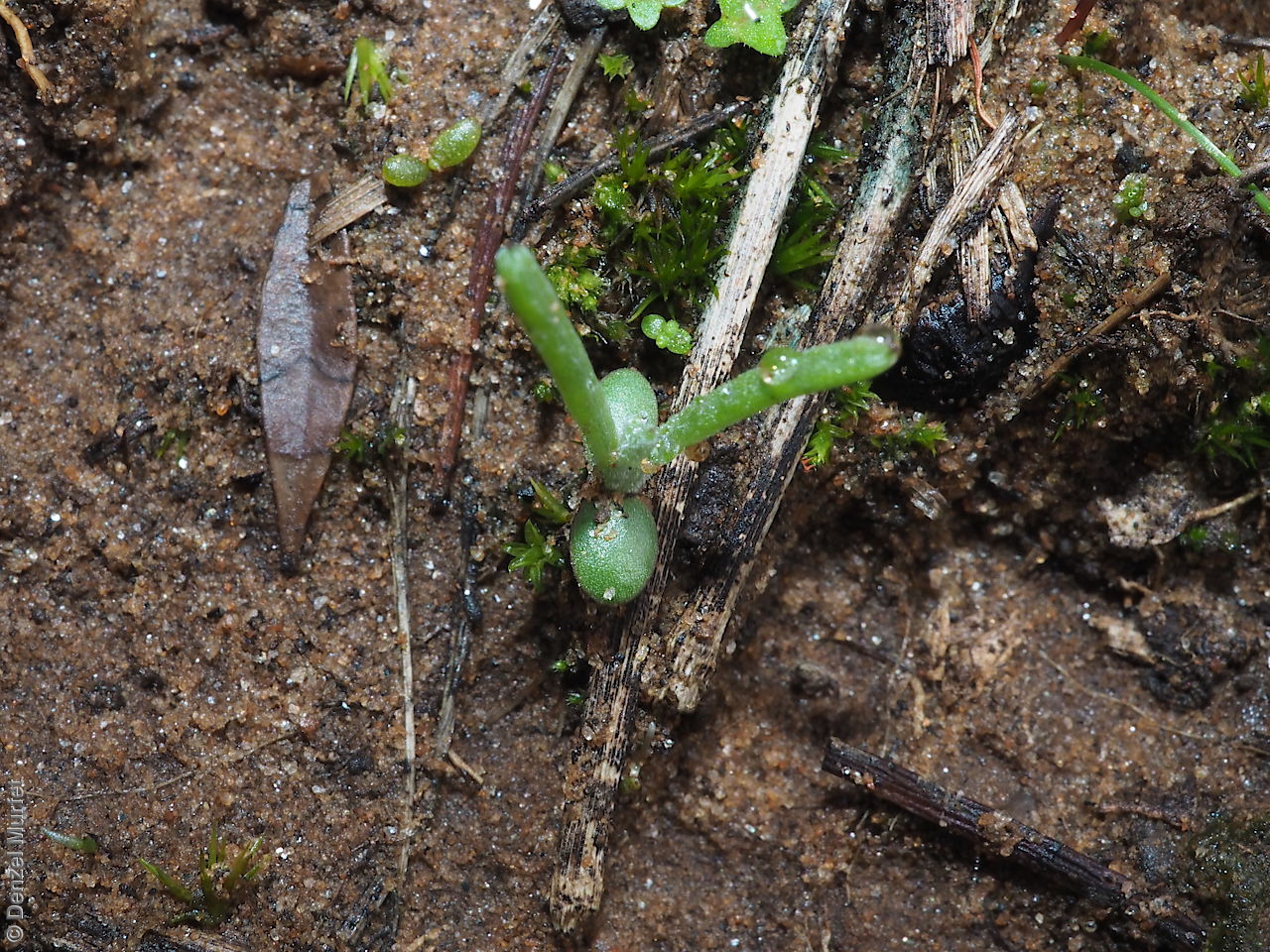
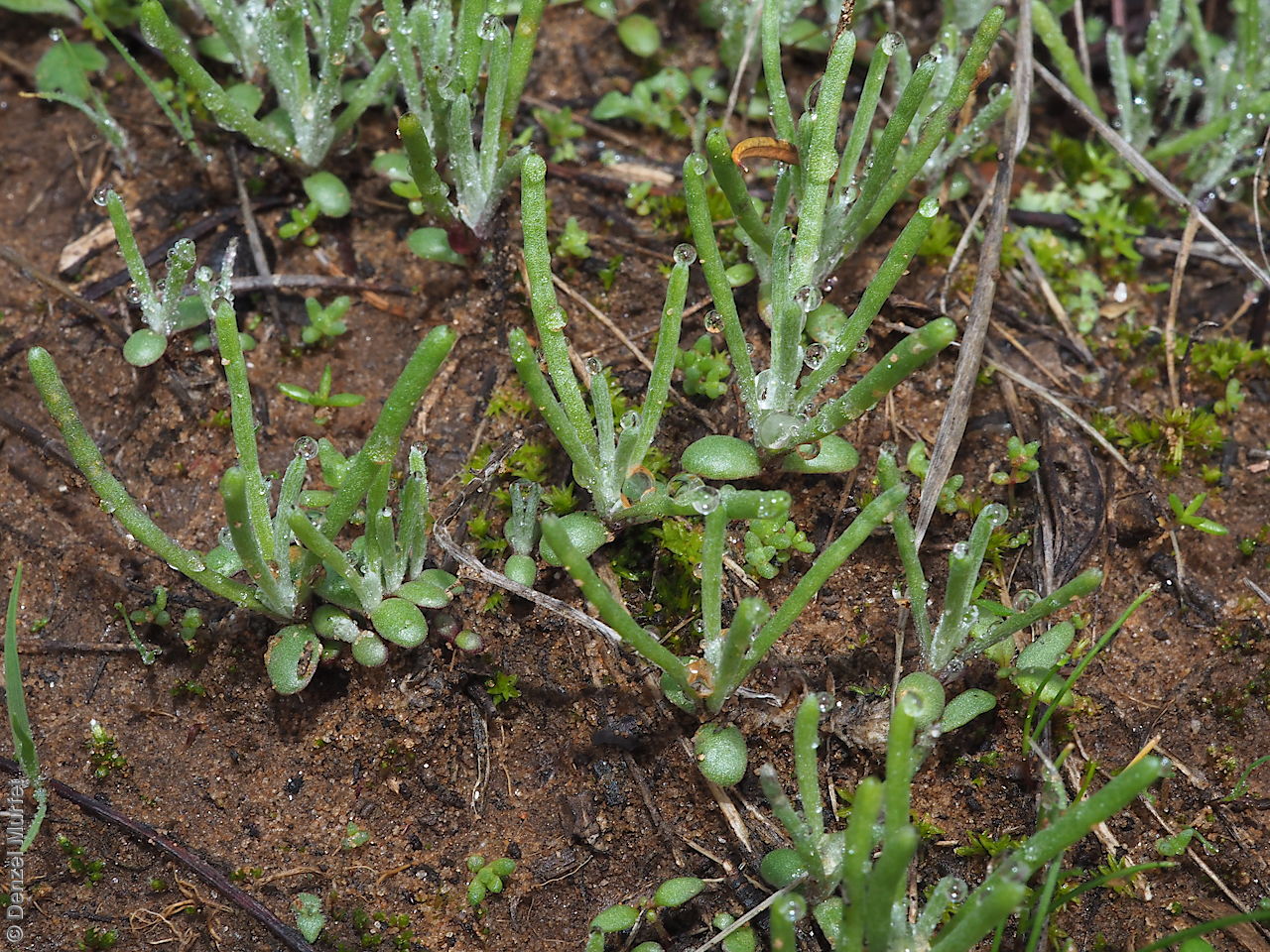


Botanical art
Prior names
Calocephalus drummondii
Common names
Dwarf Beauty-heads
Dwarf Button-flower
Etymology
Blennospora from the Greek 'blennos' meaning slime or mucus and 'sporos' meaning seed, referring to the outermost layer of the fruit which becomes gelatinous when moistened. Drummondii named after James Drummond (1786-1863), a Scottish born botanist and naturalist who was the curator of the government gardens in Cork, Ireland and an early settler in Western Australia.
Distribution and status
Found on Kangaroo Island, southern Mount Lofty Ranges and the lower South-east in South Australia, growing in temperate to semi-arid habitats on sand or sandy loam. Also found in Western Australia and Victoria. Native. Common in South Australia. Common in the other States.
Herbarium regions: Lake Eyre, Flinders Ranges, Eyre Peninsula, Northern Lofty, Murray, Yorke Peninsula, Southern Lofty, Kangaroo Island, South Eastern, Green Adelaide
NRM regions: Adelaide and Mount Lofty Ranges, Eyre Peninsula, Kangaroo Island, Northern and Yorke, South Australian Arid Lands, South Australian Murray-Darling Basin, South East
AVH map: SA distribution map (external link)
Plant description
Simple, erect or ascending-branched herbs to 10 cm high covered in cottony hairs. Leaves linear, subterete to terete, sometimes slightly succulent, to 25 mm long and 1 mm wide, cottony, the upper often overtopping the inflorescence. Inflorescences are compound ellipsoid or ovoid heads to 15 mm long and 13 mm diameter with tiny reddish flowers. Flowering between August and November. Fruits are tiny brown daisy-heads. Seed embryo type is spatulate.
Seed collection and propagation
Collect seeds between October and January. Collect heads or whole plants that are brown or turning brown. Each head should have numerous tiny seeds. Place the heads in a tray for a week to dry. Then rub the heads gently with your hands to dislodge the seeds. Use a fine sieve to separate the seeds from the unwanted material. Be careful as the seeds are very small. The seeds are dark brown and ovoid in shape. Store the seeds with a desiccant such as dried silica beads or dry rice, in an air tight container in a cool and dry place. Seed viability is usually high. Seeds are non-dormant, viable seed should germinate readily.